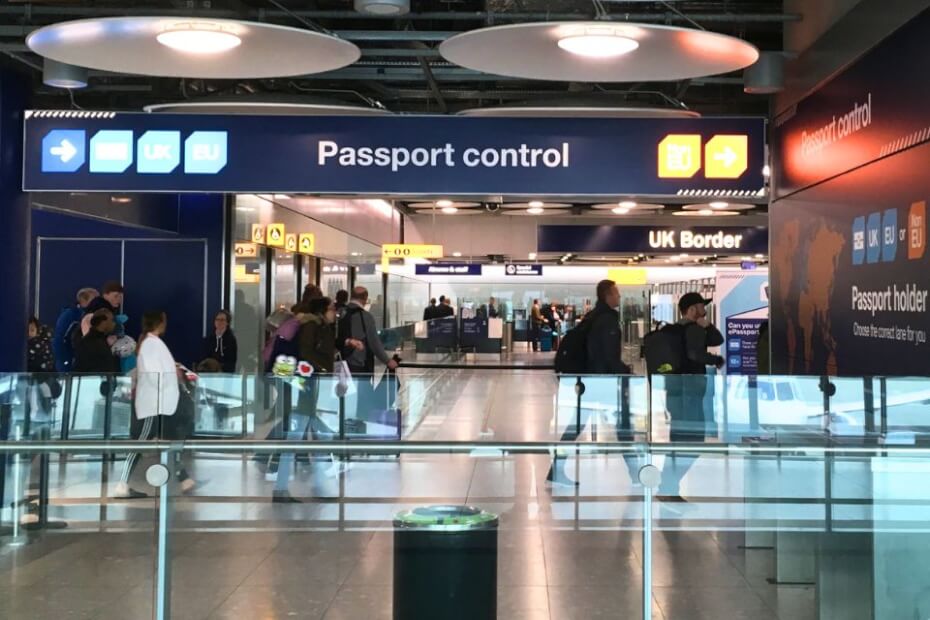
The Chairman of the International Border Management and Technologies Association (IBMATA) expressed concerns about the new Electronic Travel Authorization (ETA).
According to a report by Holyrood, Tony Smith, former director general of the United Kingdom (UK) border control, shared his expert opinion on the ETA’s risks and its possible vulnerabilities.
Speaking at the meeting with the UK Parliament’s Justice and Home Affairs Committee on 5 March 2024, Smith called for more transparency on how the new digital permit system works.
He asked for a more specific outline of the ETA system’s risk framework, which determines how it grants or rejects travel permissions.
The latest available statistics on the ETA showed that the system received 12,190 applications and granted 12,076 permissions.
This means that from October to December 2023, when the system opened to Qatar nationals, it denied ETAs to only 114 applicants.
The former UK border control director also cautioned that the government might be “too reliant” on data received electronically.
He stated that technology is not flawless and that computer program algorithms can still malfunction and make mistakes.
Smith insisted that there must always be “human intervention.” An officer must always check why the system flagged an applicant and whether it is “sufficient to overturn the ETA.”
He also suggested that the UK government invest in a parallel system to ensure electronic systems are not disrupted or tampered with.
Possible loophole in the Common Travel Area
Smith pointed out a potential loophole in the Common Travel Area (CTA), where there are no routine travel immigration checks.
He brought up the hypothetical scenario of someone first traveling to the Republic of Ireland and then entering the UK through Northern Ireland, where the land border is open and does not need an ETA.
The CTA members include the UK, the Republic of Ireland, Guernsey, Jersey, and the Isle of Man.
Citizens of these territories can travel freely within the CTA and are exempt from the ETA requirement.
Typically, the UK performs border checks only upon a traveler’s first entry into the CTA.
However, it is also expected to conduct intelligence-based border controls on those arriving in the UK from within the CTA.
Understanding the ETA system
The new UK ETA is part of the British government’s new border management system, which affects all non-visa nationals.
All non-visa nationals, or travelers who can visit the UK without a visa, will have to present a permission-to-travel ETA before traveling to the UK.
Currently, only select nationalities from the Gulf region must apply for and receive a valid ETA before visiting the UK.
However, the UK government expects to enforce it for all non-visa travelers to the UK by the end of the year. This would include European Union (EU) and American visitors.
The House of Lords Justice and Home Office Affairs Committee recently launched an inquiry on the new electronic border systems.
Aside from the UK ETA, the inquiry tackles the EU’s upcoming Entry/Exit System (EES) and the European Travel Information and Authorization System (ETIAS). The ETIAS is the EU’s equivalent to the ETA.
The EES will roll out in October 2024, while the ETIAS will be launched in mid-2025.
Standards for keeping a digital border safe
The IBMATA Chairman acknowledged the new ETA system’s benefits in improving UK border security and optimizing border control procedures.
Smith said the ETA system enables authorities to gather more data on travelers before they arrive in the UK. This effectively streamlines border checks.
He proposed three criteria for maintaining secure digital borders:
One is having a multiple border strategy. This includes gathering all the information possible and conducting as many assessments as possible before a traveler arrives in the UK.
Second is integrated border management, which involves managing and analyzing data collected from travelers.
Third is a reliable biometric and identity infrastructure to confirm travelers’ identities more accurately.
The former UK border control director also underlined the importance of a “good interface between the government and aviation systems.”
This will encourage airlines that have invested in the technology to adapt to local digital systems seamlessly.
Smith suggested that electronic border management systems can potentially replace passports and electronic passport gates for immigration procedures.
In the future, he said travel immigration and border checks may be transferred to a mobile app.

